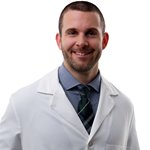As a rural retirement destination, Door County has the oldest population, per capita, in Wisconsin. As of 2017, 37% of Door County residents were 60 years old and older, versus 20% statewide. From an orthopedic standpoint, this certainly has implications. As we age, our bones weaken a bit. When the bone weakens to a certain level, this is known as osteopenia. When it weakens even further, it is defined as osteoporosis. Osteoporosis can be diagnosed off bone mineral density (BMD) testing, but there are other criteria meeting the diagnosis as well. For instance, a hip fracture sustained after a low energy ground level fall is by definition osteoporosis. Other fractures associated with osteoporosis include the wrist (distal radius) and compression fractures of the spine.
The implication of this for health and longevity are significant. Over 300,000 hip fractures occur in the US each year, and most of these fractures are related to low energy falls. The downstream effects of a hip fracture are profound. After a hip fracture, the mortality rate approaches 25% within 1 year following the fracture. Those who were out doing their own errands prior to the fracture may have difficulty with this over the long term. The medical terminology for this is “ambulatory level.” Many “community ambulators” become “household ambulators” after a hip fracture. So what can be done from a preventative standpoint? At any age, there are things we can do to improve our bone health and decrease our fall risk:
-
Exercise - Weight bearing exercise such as walking, dancing, and light weightlifting. Over the long term this can improve bone strength, muscular strength, and balance. Tai chi, with its slow focused position changes and stretching, has been demonstrated in studies to decrease the incidence of falls.
-
Calcium and Vitamin D - Calcium is required to build bone, and vitamin D is needed to absorb calcium. It is a bit easier to get the calcium you need through your diet than vitamin D. Dairy products, leafy green vegetables, and calcium-fortified foods are good calcium sources. Getting enough vitamin D can be more difficult, as it’s mostly found in fatty fish. Additionally, fortified foods contain only a small amount. For most of us, supplementing with 800-1000 IU (international units) of vitamin D per day is a reasonable option. Some people need larger doses of Vitamin D if they are deficient. This can be determined with a lab test and is best directed through your primary care provider.
-
Smoking - Smoking decreases bone quality and over the long term can cause osteoporosis. One more reason to consider quitting.
-
Alcohol intake - Excess alcohol intake on a regular basis is a known risk factor for osteoporosis.
-
Fall Prevention - If you have balance problems, take stock of your home. Hip fractures tend to occur in the middle of the night, oftentimes when one is getting out of bed to use the bathroom. In more than half of the patients whom I see for hip fractures, the mechanism involves poor lighting, a raised carpet edge, etc. Some thoughtful planning regarding this can go a long way. In addition, it’s worth reassessing each year whether clearing snow continues to be a reasonably safe activity as the winter months approach.
-
Medications - In some patients, the best option is a bone building medication. If your primary care provider has recommended this and you are on the fence about it, please consider the implications of a hip fracture in weighing the risks versus benefits.
Osteoporosis-related fractures are all too common and many times preventable. I hope that this points you in the right direction for some preventative measures you can implement for both you and your loved ones. Stay safe!

About Dr. Mark Jordan
Dr. Mark Jordan provides orthopedic services at Door Orthopedic Center in Sturgeon Bay. The Door Orthopedic Center at Door County Medical Center is a state-of-the-art facility paired with a top-notch orthopedic team that can get you back to daily living and your favorite activities as soon as possible. To schedule an appointment at Door County Medical Center's Door Orthopedic Center, visit our Door Orthopedic Center page or call Door County Medical Center at 920-743-5566.